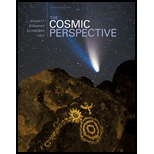
Concept explainers
Are We Causing Global Warming? Roles: Scribe (takes notes on the group’s activities), Advocate (argues in favor of the claim that human activity is causing global warming), Skeptic (points out weaknesses in the arguments made by the Advocate), Moderator (leads group discussion and makes sure everyone contributes). Activity:
a. Work together to make a list of scientific observations that have been proposed as evidence that humans are causing global warming. Your list should include, but is not limited to, the evidence in Figures 10.38-10.42. b. Advocate presents the case that humans are causing global warming, drawing on the evidence from part a. c. Skeptic attempts to refute Advocate’s case using scientific arguments.
d. After hearing these arguments, Moderator and Scribe decide whose arguments were more persuasive and explain their reasoning. E. Each person in the group writes up a summary of the discussion.
Want to see the full answer?
Check out a sample textbook solution
Chapter 10 Solutions
The Cosmic Perspective
- Plz both no chatgpt Will.upvotearrow_forwardPlease solve the problem step by step with explanations along each step explaining what's been done.Thank you!!arrow_forwardFigure 8.14 shows a cube at rest and a small object heading toward it. (a) Describe the directions (angle 1) at which the small object can emerge after colliding elastically with the cube. How does 1 depend on b, the so-called impact parameter? Ignore any effects that might be due to rotation after the collision, and assume that the cube is much more massive than the small object. (b) Answer the same questions if the small object instead collides with a massive sphere.arrow_forward
- 2. A projectile is shot from a launcher at an angle 0,, with an initial velocity magnitude vo, from a point even with a tabletop. The projectile hits an apple atop a child's noggin (see Figure 1). The apple is a height y above the tabletop, and a horizontal distance x from the launcher. Set this up as a formal problem, and solve for x. That is, determine an expression for x in terms of only v₁, 0, y and g. Actually, this is quite a long expression. So, if you want, you can determine an expression for x in terms of v., 0., and time t, and determine another expression for timet (in terms of v., 0.,y and g) that you will solve and then substitute the value of t into the expression for x. Your final equation(s) will be called Equation 3 (and Equation 4).arrow_forwardDraw a phase portrait for an oscillating, damped spring.arrow_forwardA person is running a temperature of 41.0°C. What is the equivalent temperature on the Fahrenheit scale? (Enter your answer to at least three significant figures.) °Farrow_forward
- What is the period of a rock of mass 2.0kg tied to the end of a spring 0.625m long string that hangs in a doorway and has an elastic constant of 40N/m?arrow_forwardGive an example of friction speeding up an object.arrow_forwardWhich is the higher temperature? (Assume temperatures to be exact numbers.) (a) 272°C or 272°F? 272°C 272°F They are the same temperature. (b) 200°C or 368°F? 200°C 368°F They are the same temperature.arrow_forward
- What is the direction of a force vector given by ~v = −6Nˆi − 8Nˆj?arrow_forwardWhat can be said of the position vector of an object far from any influences on its motion?arrow_forward་ Consider a ball sliding down a ramp as shown above. The ball is already in motion at the position 1. Which direction best approximates the direction of acceleration vector a when the object is at position 2?arrow_forward
 AstronomyPhysicsISBN:9781938168284Author:Andrew Fraknoi; David Morrison; Sidney C. WolffPublisher:OpenStax
AstronomyPhysicsISBN:9781938168284Author:Andrew Fraknoi; David Morrison; Sidney C. WolffPublisher:OpenStax Foundations of Astronomy (MindTap Course List)PhysicsISBN:9781337399920Author:Michael A. Seeds, Dana BackmanPublisher:Cengage Learning
Foundations of Astronomy (MindTap Course List)PhysicsISBN:9781337399920Author:Michael A. Seeds, Dana BackmanPublisher:Cengage Learning
 Horizons: Exploring the Universe (MindTap Course ...PhysicsISBN:9781305960961Author:Michael A. Seeds, Dana BackmanPublisher:Cengage Learning
Horizons: Exploring the Universe (MindTap Course ...PhysicsISBN:9781305960961Author:Michael A. Seeds, Dana BackmanPublisher:Cengage Learning
 Stars and Galaxies (MindTap Course List)PhysicsISBN:9781337399944Author:Michael A. SeedsPublisher:Cengage Learning
Stars and Galaxies (MindTap Course List)PhysicsISBN:9781337399944Author:Michael A. SeedsPublisher:Cengage Learning





